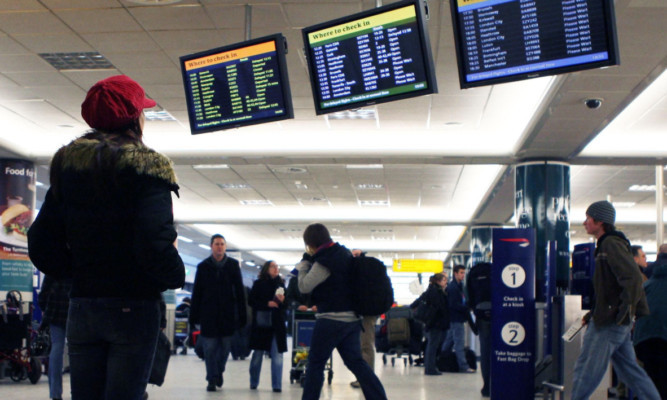Executives at Edinburgh Airport have called for political consensus over plans to increase runway capacity in the south-east of England, underscoring what they see as an increased role for stablemate Gatwick.
Chairman Sir John Elvidge and chief executive Gordon Dewar called for “bold and adventurous thinking” from the Airports Commission in their submission to the ongoing study of options for the development of the aviation industry, insisting that action and the “physical delivery of infrastructure” was an urgent priority.
They believe Gatwick which, like Edinburgh, is under the ownership of Global Infrastructure Partners could “most easily” deliver new short-term runway capacity for additional flights. Bosses there said in March that building a second runway would be more feasible than extending Heathrow.
A “constellation” proposal which would see Gatwick and Stansted pick up fresh capacity and new services from increasingly-strained Heathrow, supported by improved surface transport links by rail and bus would increase competition, bring down prices and spread Scotland’s “risk” across multiple sites, Edinburgh’s managers argue.
But their submission stresses that ensuring politicians of all parties unite to deliver modernisation, whatever the outcome of the present deliberations, was the most important possible outcome.
“In order to facilitate the investment required to modernise the UK’s dated airports infrastructure, Government must build political consensus around a long-term aviation policy that provides global investors in airports with similar long-term certainty,” it said.
Edinburgh said it would continue to develop its own routes, and urged the commission to consider new policies to encourage airlines to introduce direct international services to airports outside London. Edinburgh’s long-term masterplan foresees it growing passenger numbers from 9.2m last year to 13m by 2021.
The airport also said it “implored” the commission, under the leadership of Sir Howard Davies, to tackle Air Passenger Duty, which it said undermines important air routes to remote regions and weakens the case for boosting airport capacity.
Scottish Chambers of Commerce have long railed against the effects of the policy, which it says costs Scotland jobs and investment. Around 350 UK businesses have already signed a petition for its removal, including travel, whisky and major oil and gas services firms.
In an earlier submission, the Scottish Council for Development and Industry also attacked the “political vacillation” which had led to a lack of action on the capacity issue and called for improved regional access, new route development support for regional bases, and the devolution of Air Passenger Duty.
The SCDI said Aberdeen’s oil and gas industry relied on good connections to export its knowhow internationally, while expertise in the knowledge-intensive field of renewable energy will also require good transport links. It also warned that the pressures on Heathrow had led to the withdrawal of connections to Scotland in favour of lucrative long-haul routes.
The commission is expected to announce interim findings this year, which will narrow down capacity expansion options to those it considers feasible. Its final recommendations are not expected to be known until May 2015, following the next general election.
Dundee Airport operator HIAL has already made a submission, though it has not yet been published, while Transport Scotland said it would continue to engage with the commission and “make the case for securing access to the London airports”.
